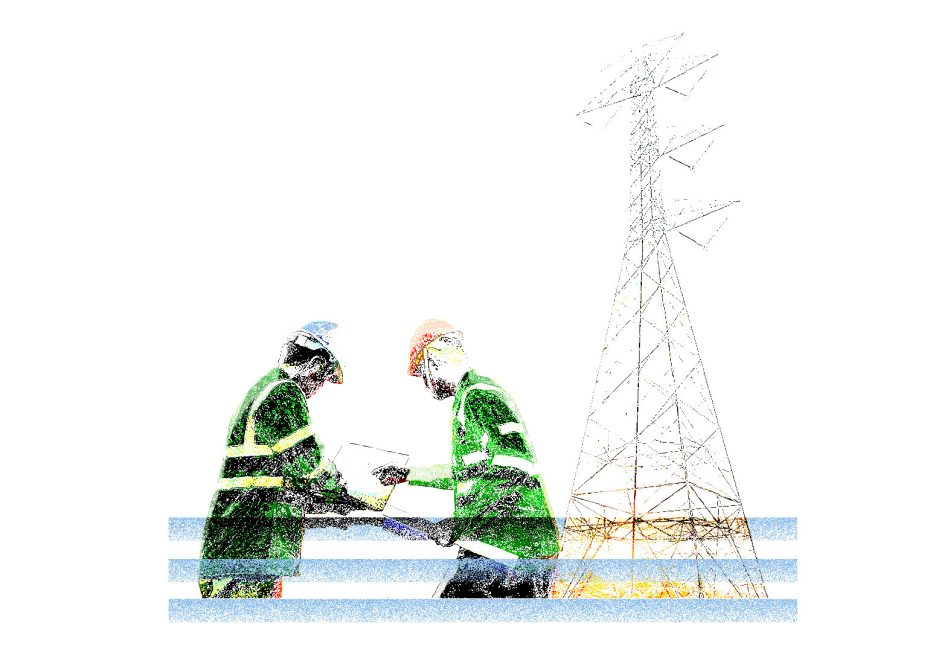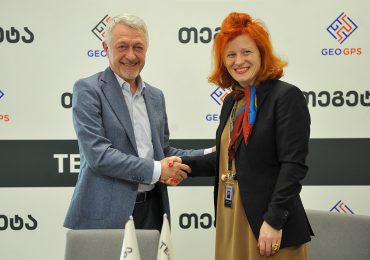INTRODUCTION
The legal framework of Georgian electro energy markets’ antimonopoly environment consists of the Law of Georgia on “Energy and Water Supply”, Law of Georgia on “Competition”, and Resolution N7 on “Approving Rules for Energy Market Monitoring and Reporting” adopted by the National Energy and Water Supply Regulatory Commission of Georgia (GNERC) on 30 March of 2021. Only a few articles of the Law of Georgia on “Competition” spread in the energy markets are indicated in the mentioned resolution.
The presented article reviews obligations to provide public services in Georgian energy markets, promotion of electricity production, measures for safety to supply the electricity and their interrelation with the antimonopoly standards; the special rule to independently formate system operator; basic principles of the electro energy competition regulation in EU; specification of restrictive agreements, decisions and concerted practices in Georgian legislation and several criteria to define a dominant position in electro energy markets.
Along with each topic are suggested relevant recommendations on behalf of Georgian electro energy markets to ensure their better antitrust regulation.
OBLIGATION TO PROVIDE PUBLIC SERVICES IN THE ENERGY MARKET AND ITS INTERRELATION WITH THE ANTIMONOPOLY STANDARDS
GENERAL OVERVIEW OF PUBLIC UTILITIES IN THE EU AND USA
Each participant in the electric energy market is of high quality and depends on the other. Generally, it includes the generation, transmission and distribution of electricity.
Antimonopoly literature and legal regulations these public utilities confer the vertically integrated structure when the supply final product “electricity” is owned and controlled by the same company.
The term public utility is not widely used in Europe. It is primarily used in the United States and the United Kingdom to describe private undertakings that: (1) provide essential services to the public and (2) are subject to a scheme of pervasive government regulations. In European law, these entities are referred to as undertakings providing services of general economic interest.
Some public utilities operate as public-owned businesses in the form of revenue-producing monopolies. Most public utilities operate, however, as private-owned businesses to which the government affords certain exclusive rights. The most dominant public utilities are undertakings that build and operate exclusive or semi-exclusive distribution networks to provide their services. [1]
Early American public utilities had several characteristics. First, they operated as private businesses that gave service to the public in the most general way. Second, given such industries’ high entry capital investment, they held legal or de facto monopoly or quasi-monopoly power. They possessed the legal or market power to prevent competition for their services. Third, they tended to provide services within fixed territories usually assigned by the government. Fourth, they had the duty of universal service: the duty to serve all members of the public for the service provided in a non-discriminatory way. Fifth, they could charge the public tariffs or rates that had to be reasonable and commensurate with the services rendered. Finally, courts interpreted the reach of the legal monopoly of such public utilities narrowly when that monopoly was faced with the creative destruction brought in by new market entrants that introduced innovative ways to provide the service. [2]
PUBLIC UTILITIES IN GEORGIAN LEGISLATION
According to the Law of Georgia “on Energy and Water Supply,”: “An obligation to provide a public service may except for a service as provided by the clause 11 of this article,[3] it could be imposed on any energy undertaking if required for the achievement of the goals established by this law. The imposition and fulfilment of a public service obligation shall be transparent, non-discriminatory and easily verifiable. It shall be proportional, shall not restrict competition in the energy markets more than necessary for achieving the goals of the mentioned public service, and shall provide the energy undertakings of the parties to the Energy Community with equal access to end users in Georgia”. (Article 9, clause 4).
Clause 7 of the same article regulates: “All the measures in the form of a public service obligation offered under this law shall be assessed taking into account the requirements of this article and, where appropriate, shall be substantiated in compliance with the requirements of the legislation of Georgia regulating competition and/or state aid”.
In the case of the 4th clause, there are no indicated criteria of: 1. The “proportional” measures of restricting the competition environment, 2. The benchmark of the mentioned “necessity” of restriction. On the one hand, the high social meaning of the public service supply in energy markets is important. On the other hand, it would be better to regulate the prerequisites of the competition environment’s possible restrictions.
In the case of the 7th clause, similarly, there is no expressed assessment of the appropriation to substantiate the necessary measures in compliance with Georgian competition legislation. Fortunately, the special resolution in detail regulates the forms of the dominant position in energy markets. The substantiation should be accomplished to compare the circumstances and appropriate assertation with the resolution’s demands. Contrary to this, we have no regulated special measures to indicate when it is appropriate to substantiate that the requirements of Georgian competition legislation are not breached concerning the public utilities. It would be better for these clauses to describe the mentioned measures and criteria to find the optimal balance between the social interests and the requirements of the anti-monopoly environment.
PROMOTION OF ELECTRICITY PRODUCTION AND ITS INTERRELATION WITH THE ANTIMONOPOLY STANDARDS
Law of Georgia “on Energy and Water Supply” describes: “The promotion of electricity production, including the assessment of all encouragement and/or support measures, shall be carried out taking into account the requirements of this law and where necessary, be substantiated under the legislation of Georgia regulating competition and/or state aid”. (Article 37, clause 4).
Like the 7, the clause of article 9 doesn’t characterize the necessity to substantiate described measures with the antimonopoly legislation. Similarly, this clause improperly regulates this issue, and it would be better to choose the opposite approach. Besides: 1. We can consider the law of Georgia “on Public-Private Partnerships”, which only in the energy sector allows the selection of a private partner by direct negotiation with the public entity; 2. According to the resolution N 515, adopted by the Government of Georgia on 31 October 2018, “on approval of the rules and conditions, review and submission to the Ministry of Economy and Sustainable Development of Georgia technical-economic study of the construction, ownership and operation of the power plants, which doesn’t represent a project of a public-private cooperation”, Ministry of Economy and Sustainable Development of Georgia along with an investor prepares an offer to the Government of Georgia to construct HPP in Georgian territory and the final decision makes Government of Georgia.
These two regulatory mechanisms include the cooperation between an investor and the Government of Georgia, and they nowhere mention antimonopoly measures. It is a consequence of the aim of the Georgian energy policy to develop renewable energy.
In order to commercially realize electricity produced by new power generations, the EU Council directive N96/92 mandated national rules regarding the procurement of new power generation. Member States had the choice of establishing an authorization process (similar to what in the United States is known as integrated resource planning) or a tendering process to promote the bid by third-party power producers for the new generation. The Directive also asked the member states to provide non-discriminatory third-party access to their systems by implementing a negotiated or single buyer model. It also recognized the auto producer and the independent electricity producer. It mandated the removal of obstacles to the installation of direct electric lines, that is, electric lines that were not interconnected to the network.
MEASURES FOR SAFETY TO SUPPLY THE ELECTRICITY AND ITS INTERRELATION WITH THE ANTIMONOPOLY STANDARDS
According to the law of Georgia “on Energy and Water Supply,”: “All the measures taken or imposed with respect to the objectives provided by clause 1 of this article[4] shall be non-discriminatory and shall not restrict competition and price-related signals in the electricity market more than necessary. Furthermore, these measures shall not impose an unjustified burden on electricity market participants, including new participants and undertakings with a small market share. Taking such measures shall be justified with regard to their economic and social impact upon the end user and their potential effect on the price of electricity”. (Article 134, clause 2).
There is no explanation of the criteria of the “non-discriminatory” measures and the measure of the mentioned “necessity” when such measures are allowed to be accomplished by the Ministry. Herein it would be better if the law described all of this in detail.
EXCEPTIONAL RULE TO INDEPENDENTLY FORMATE SYSTEM OPERATOR
Law of Georgia “on Energy and Water Supply” describes: “If the person provided by clause 2[5] of this article is a Georgian state authority, municipality body or other public agency, two separate public agencies, one of which controls a transmission system operator or transmission network and the other controls an energy undertaking carrying out any activity of production or supply, shall not be considered the same person “. (Article 45, clause 5).
Mentioned quotation to ensure competitive circumstances for transmission system operator’s or transmission network’s commercial activity is dangerous due to the following reason: If the law restricts an antimonopoly activity of the transmission system operator or transmission network and defines strict criteria for their independent functioning, the prohibition of independence in relation with such enterprises owned by the Georgian state body, local government or other public institution will set an unequal position for the commercial electro energy enterprises.
According to the law of Georgia on “Competition”: “The purpose of this law is to support the liberalization of the Georgian market, free trade and competition, in particular, to prevent state authorities, authorities of the Autonomous Republics and/or municipal authorities from granting to undertakings such exclusive powers that unlawfully restrict competition”. (Article 2, sub-clause “f”). Irrespective of that, this article doesn’t directly spread on the anti-monopoly circumstances of the electro energy markets. It is worth admitting that this clause should be realized as a legal analogue because electro energy markets are competitive, and the state authorization could not be able to set extra barriers against it.
Article 10 of this law determines: “State authorities, authorities of Autonomous Republic, municipal authorities and other administrative authorities may not:
a) establish a union, association, or another type of entrepreneurial structure, if it leads to the weakening or restriction of competition, except in cases provided by the legislation of Georgia;
b) grant such benefits to undertakings that place them at an advantage over their competitors, or potential competitors, and lead to the distortion of competition, except as provided by the legislation of Georgia;
c) ban, suspend and/or otherwise hinder the entrepreneurial activities and independence of undertakings, except as provided by Georgian legislation;
d) create state agencies for the monopolization of production or distribution of goods or grant such powers to already existing agencies that distort competition, except as provided by the legislation of Georgia;
e) make decisions that result in the monopolistic position of undertakings, thereby substantially restricting free pricing and competition, except as provided by the legislation of Georgia”.
The law of Georgia on “Competition” does not specify which legislation is considered when the cited article several times makes the following reservation “except in cases provided the legislation of Georgia”.
We can assume that this problem is one of the exceptional cases mentioned by the “Competition” law. Despite considering such an assumption, neither the Law of Georgia on “Energy and Water Supply” nor any other legislative act explains why an exception can be made on behalf of the Georgian state body, local self-government or other public institution. Formulating this issue in such a manner will lose the meaning of the attempt to establish the free and sophisticated commercial market of the transmission system operator and transmission network.
BASIC PRINCIPLES OF ELECTRO ENERGY COMPETITION REGULATION IN EU
EU electro energy competition policy is formulated by ensuring comprehensive energy liberalization. The three prerequisites for adequate competition in electro energy network industries are broad access to the grid, consumers’ free choice to use one or another suppliers’ service and supplier’s possibility to operate by their own decision considering the antimonopoly restrictions. Four essential tools are instituted to realize these prerequisites: 1. Control the different types of concentration between/among other energy corporations; 2. Restricting market dominant position and supervision of cartels and concerted actions; 3. Manage and regulate different types of aid programs offered by the state, administration of the autonomous republic and/or local municipality and 4. A permanent control of the corporations, which gained certain rights and/or, in some cases, privileged possibilities to operate on one or another electro energy market.
SPECIFICATION OF RESTRICTIVE AGREEMENTS, DECISIONS AND CONCERTED PRACTICES IN GEORGIAN LEGISLATION
The law on “Competition” defines the criteria under which the actions of energy market participants can be qualified as a threat against the competitive environment and/or encouraging such a threat.
According to the sub-clauses “c” and “d” of the 7th article of this law: “Any agreement, decision or concerted action of undertakings that have as their object or effect on the prevention, restriction and/or distortion of competition within the relevant market, shall be prohibited, in particular, those which: c) shares markets or sources of supply by consumers, location or other characteristics; d) establishes different conditions for equivalent transactions with the particular trade parties, thereby placing them at a competitive disadvantage”.
Among these sub-clauses, the situation described in subsection “c” may be evaluated as a subjective criterion as an agreement, decision and concerted action restricting competition. Under free entrepreneurial conditions, market participants should be allowed to define the segment of goods/services for sale, taking into account territorial, regional or other factors, which may be depended on the specific needs of the local population and/or special requirements of undertakings operating in a particular geographical area.
In particular, it is possible that such enterprises – direct consumers of electricity, which need excessive consumption of capacity are closely represented in one or another geographical location. Besides the needs of share markets or sources of supply by consumers as a last alternative provider, universal service suppliers and electricity providers in the form of public service are already represented by the geographical monopolistic/oligopolistic undertaking(s).
Commercial freedom of entrepreneurship and, in this case, freedom of electricity generation facilities should not be imperatively prohibited by the law. In addition, electricity trading in the free energy exchange market already excludes monopoly threats because the transparency of trading and the possibility of making insider deals are strictly eliminated by the applicable regulations. Moreover, according to one of the principles of private law, the subject of private law has the right to perform an action not directly provided by the law if this action does not contradict the law’s imperative prohibitions and fundamental principles. The cited prohibition, in its turn, limits the freedom of one of the consisting parts of the commercial activity.
Sub-clause “d” also cannot be considered as a potential threat, which could limit the competition environment in one or more electro energy markets. In particular, the autonomy of the contractual will, along with the many elements, determines the free and unrestricted will of the contracting party assumes certain obligations as a result of signing the appropriate deal. “To establish different conditions”, as mentioned in the clause, may be considered by subjective criteria. It can become the subject of the interpretation of an agreement during negotiation and dispute resolution in the Georgian National Energy and Water Supply Regulatory Commission (GNERC) and/or in court.
Suppose the party participating in the contractual relationship finds itself under a “competitively unprofitable situation” and if there were no conditions for invalidity of the transaction regulated by the civil code of Georgia as a prerequisite to deal with this agreement. As a result, the contracting party should bear the entire contractual risk. Such a public-legal prohibition limits the contractual principle of freedom of will. Also, it leaves the possibility of qualifying the issue subjectively. The specifics of the electricity markets are added to this consideration. In particular, the activities of electricity producers, transmission and distribution licensees are distinguished. Enterprises operating in these markets are already strictly regulated, which reveals the pricing of their services. Considering the above, it would be better not to outspread these sub-clauses on the electro energy market participants.
Contrary to the above reasoning, the first clause of the 9 article of the describing law regulates the following: “The provisions of Article 7(1) of this law shall not apply to the agreements, decisions and concerted practices which contribute to the improvement of the production and/or supply of goods, technical or economic progress, while allowing consumers a fair share of the resulting benefits, and which do not:
a) impose any restrictions upon the undertakings participating in the agreement that are not indispensable to the attainment of these objectives;
b) afford undertakings participating in the agreement the possibility of eliminating competition with respect to a substantial part of the relevant market”.
Improvement of the production and/or supply of goods, technical or economic progress and increasing customer welfare, are phenomena beyond the scope of the legislative regulation.
Current legislation doesn’t include the criteria, which define the conditions of “improvement of the production and/or supply of goods” and “technical-economic progress” and what is the scale of the customers’ welfare growth. Such circumstances can be recorded and counted using different statistical, sociological and marketing methodologies. Deregulating similar issues leaves the danger for subjective decision-making in such situations, which may cause a cut-throat competition environment and harm individual entrepreneurs’ fair interests. To avoid negative consequences, it would be better if the law as much as possible specifies the problematic circumstances discussed above, taking into account the specificity of the electro energy markets.
SEVERAL CRITERIA TO DEFINE THE DOMINANT POSITION IN ELECTRO ENERGY MARKETS
Conversely, the 6th article of the Law of Georgia on “Competition” prohibits using the dominant position in one or another market. It defines the different situations which may be classified as a “dominant position” 7th article of this law spreads on the ordinary market players and not the natural monopolists and/or oligopolists. Resolution adopted by the GNERC approximately, in the same way, defines the definition of the “dominant position” as the law of Georgia regulates it on “Competition”. There are several differences between these two acts, which mainly reveal defining the criteria for assessment of the dominant position.
In particular, according to the law: “Each out of two or more undertakings shall be considered to be in a dominant position if it does not encounter any significant competition within the group under consideration and from other undertakings, taking into account the limited access to their raw materials and the sales markets, market entry barriers and other factors, and at the same time:
- The joint market share of not more than 3 undertakings exceeds 50%, and, at the same time, the market share of each of them is at least 15%;
- The joint market share of not more than 5 undertakings holding the most significant market share exceeds 80%, and, at the same time, the market share of each of them is at least 15%”. (Article 3, sub-clauses “i.a” and “i.b).
According to the resolution adopted by GNERC:
“Each undertaking within a group of enterprises shall be considered to be in a dominant position if (along with the other factors):
- The joint market share of no more than 3 undertakings in the relevant market is not less than 50%, while each of them has a market share of not less than 15%;
- No more than 5 undertakings have a combined share of at least 80%, while each has a market share of at least 15%. (Article 19, clause 3, “a” and “b” sub-clauses).
The difference is the following: according to the law, if the joint market share of not more than 3 undertakings exceeds 50%, and, at the same time, the market share of each of them is at least 15%, such a situation is considered as a “dominated position”, and according to the resolution of GNERC, the mentioned percentage share is determined similarly. Still, the criteria are not “to exceed 50%” but to be “not less than 50%”. Similarly, the law defines that in case of more than 5 undertakings have a combined share and this share “exceeds” 80%, the resolution defines not to “exceed” but if such a combination is at least 80%.
It is significant that according to the resolution, the quoted clause of the law and the other clauses exclusively disseminate the competitive environment of the energy markets.
At the same time, the resolution defines the following: “All terms used in the resolution should be interpreted and used in accordance with the Law of Georgia on “Energy and Water Supply” and Law on “Competition”. If the separate terms are used in a different context, they will be defined as it is regulated by the law on “Energy and Water Supply” and by the law on “Competition”. Between them the priority will be given to the meaning, which is defined by the law on “Energy and Water Supply”, except when the relevant term provided in the resolution is used to accomplish the requirements regulated by the law on “Competition”. (Article 4, clause 2).
The definition of the “dominated position” is included in the section of the “terminology” of the law on “Competition”.
Suppose we consider that the quoted clause of the law on “Competition”, which establishes the criterion of a dominant position, directly applies to energy markets and the standards defined by the resolution. This law backs out the defined part; it would be better to eradicate this irrelevance. It should be noted that the law has a hierarchically higher legal force than the resolution. The solution is either to correct the presented part of the resolution, or if the resolution is the direct consequence of the energy markets’ character, then the exact resolution should not make a reservation that the relevant (cited) clauses of the “Competition” law apply on it. This emphasizes the exclusive determination of the “dominant position” in such a regulated sector as it is electro energy and its diverse markets, which in several situations are distinguished by complex monopolistic and oligopolistic nature. In specific markets, there is a highly competitive environment.
Finally, regarding the abuse of the dominant position by the subsidiary company, one of the decisions of the Court of Justice of the European Union offers the following explanation:
“The Court, having been asked by the national court to set out the conditions for imputing liability for the conduct of a subsidiary to its parent company, holds that when a dominant position is abused by one or several subsidiaries belonging to one economic unit, the existence of that unit is sufficient to regard the parent company as being also liable for that abuse. There must be a presumption that such a unit exists if, at the material time, almost all of the capital of those subsidiaries was held, directly or indirectly, by the parent company. In such circumstances, the competition authority is not required to provide any additional evidence unless the parent company shows that, despite holding such a percentage of the capital of those companies, it did not have the power to define their conduct, and those companies were acting independently”. (Luxemburg, 12 May 2022. Judgement in Case C-377/20. Servizio Elettrico Nazionale and Others).
CONCLUSION
There are a lot of actors in the different electro energy markets, and the quality and complexity of their interrelationships are significant. Without any reason, proper regulations can eliminate and, in some cases, mitigate the risks of the monopoly, which finally should positively impact the: existing market participants; potential investors interested in different markets; new, small and medium-sized energy companies, generating electricity via renewable sources, final householding and corporate customers of the electricity and generally, other macro parameters of the country’s economy.
Georgian law on “Competition” and all of its amendments were elaborated based on the requirements of the Deep and Comprehensive Free Trade Area (DCFTA) and the practice of the European Commission and the European Court of Justice; Georgian law on “Energy and Watter Supply” provides a legal framework which reflects the requirements of different EU legal acts (directives of European Commission) (as it is also indicated in the 4th clause of the first article of this law). There is no doubt that adopting these laws based on the mentioned EU acts and the court practice is the basic strategically important task not only to reform an anti-monopoly environment in electro energy markets but also generally for Georgian energy policy. In order to ensure harmonized reception of the EU standards regulating the competitive environment of Georgian electro energy markets, it’s essential not only to integrate different legal clauses into domestic legislation but also to rationally measure the mutual dependence of the different regulatory legal acts in their meaning. Described several topics are significant elements of the competitive environment of the electro energy sector, and their better regulation, in turn, will ensure: an optimal antimonopoly climate and avoid potential misunderstandings among existing market participants, investors, regulatory commission and courts.
Levan Kokaia has a Master in Law and a Master in Public Administration. He is a corporate lawyer at a hydroelectric energy company, which is included in Czech energy holding JSC “GEEN CJ a.s”. He is the author of more than fifty publications and a guest lecturer and trainer at GIPA.
Sources:
[1] Luis Anibal Aviles Pagan. The role of the European Union’s competition rules in shaping the electric energy markets in Europe. (2016).
[2] Fred Bosselman ET AL. Energy, economics and the environment 46 (3rd. ed. 2010), quoted from – Luis Anibal Aviles Pagan. The role of the European Union’s competition rules in shaping the electric energy markets in Europe. (2016).
[3] Energy and water supply activities, which should be compulsorily authorized by Georgian Energy National Energy and Water Supply Regulatory Commission.
[4] This clause describes an authority of the Ministry of Economy and Sustainable Development of Georgia, which measures it can accomplish in order to ensure the safe supply of electricity.
[5] This clause describes the prohibitionary measures, which ensures an independence of the transmission system operator.
Levan Kokaia – Masters in law. Attorney at Law. Legal consultant on corporate governance issues. Currently serves as a corporate lawyer at one of the energy companies. Member of Georgian Bar Association. Author of more than 45 publications. Guest lecturer and trainer at GIPA.


















